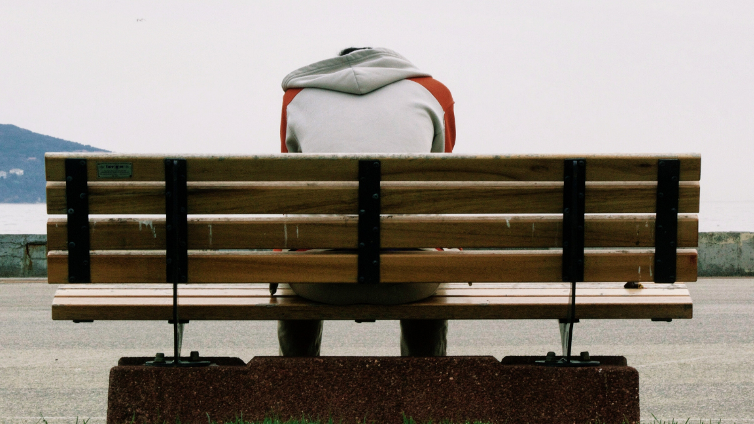
What does mental health look like in the age of COVID-19? It’s still too early to tell. Photo by Serkan Göktay, pexels.com
The number of Canadians expressing increased levels of anxiety and depression has quadrupled since the arrival of COVID-19, according to a recent report by Mental Health Research Canada.
Ontario responded by making therapy free for people with anxiety or depression. Minister of Health Christine Elliott explained that individuals will be assessed by a “trained mental health clinician” and then “offered a therapy program that best addresses their level of need.”
Research is underway to better understand the impact of the pandemic on the mental health of Canadians. The Centre for Addiction and Mental Health (CAMH) in Toronto regularly updates its survey numbers online.
CAMH found that 25 per cent of respondents report moderate to severe anxiety levels. Women, people with children under the age of 18, and younger adults (aged 18-39) are more likely to feel anxious and depressed during COVID-19. People with a job that exposes them to high risk of infection are also more likely to have high levels of anxiety. Job loss also negatively affected people’s mental health.
“This is the first of a series of surveys,” explains Hayley Hamilton, a senior scientist in the Institute for Mental Health Policy Research at CAMH. “We asked a series of questions, such as ‘To what extent are you worried about the impact of COVID-19 on your personal finances, about getting COVID-19?’”
Hamilton says these questions help link COVID-related events to the person’s mental health at the time. As data rolls in from proceeding surveys, she is getting a clearer picture of how events of the day are affecting people’s wellbeing.
People have been dramatically affected by social isolation and overall uncertainty of what is to come.
“We have to be on the lookout for changes in how the population is adjusting,” Hamilton said. “As we re-open, what are people experiencing? Are anxiety levels going down? Are people drinking less? We’re hoping to see reductions in loneliness as people re-engage on a personal level with others.”
More information is needed on the mental health impact of COVID-19 in Canada. However, research from China offers insight into what we might expect. Just days before the World Health Organization declared COVID-19 a pandemic, scientists in China began surveying populations for psychological distress.
Cuiyan Wang, a researcher at the Institute of Cognitive Neuroscience at Huaibei Normal University, measured the connection between the pandemic and people’s mental states. Results of the study are published in the International Journal of Environmental Research and Public Health. Wang and colleagues collected data on how people were coping just two weeks after the initial outbreak in China, one day after the WHO declared the virus and international public emergency.
The study examined 1,210 respondents from 194 cities. Of this population, 53.8 per cent reported a moderate to severe psychological impact score. In a follow-up study a month later, Wang found that people felt less distressed as the government took action to contain the virus. Most people surveyed were concerned about their family contracting the virus. They also were more likely to report anxiety if they were feeling physical symptoms associated with the virus.
Jianyu Qiu and a team from the Shanghai Mental Health Center shed additional light on the link between COVID-19 and mental health in China. Their study, published in March, analyzed 52,730 survey responses. Of these, 53 per cent reported a moderate or severe psychological impact from COVID-19. Migrant workers experienced the highest levels of distress. This was due to concerns about virus exposure when returning to work, reduced work hours, and reduced income. People over the age of 60 were also among the most vulnerable to distress, as COVID-19 is particularly lethal to this age group. The study also found that women were vulnerable to distress and more likely to develop post-traumatic distress disorder. This suggests that COVID-19 will adversely affect the mental health of some groups more than others, particularly if they are more at risk of infection.
Hamilton’s research reveals that women, people with children, and people who have lost their job are taking the brunt of psychological distress in Ontario. But some populations remain unaccounted for.
So far in the province, 80 per cent of COVID-19 deaths have occurred in long-term care. In Toronto, the five most-affected neighborhoods are more likely to have low-income, racialized, and immigrant populations. The pandemic is also adversely affecting homeless shelters’ ability to provide adequate support to people on the street—a population already vulnerable to physical and mental health conditions. More research is necessary to determine how these peoples’ mental health are affected by the increased risk of infection and death.
By: Eric Dicaire

Eric Dicaire is a communicator and thinker based out of Ottawa, Canada. He currently holds a Master’s degree in Communication from the University of Ottawa, and is the communications coordinator for the Bruyère Research Institute. He enjoys examining how people think about and interact with media, and how these interactions influence public discourse in Canada. He aspires to be a life-long learner, looking for new ways to challenge his own biases and exploring new concepts and ideas.
